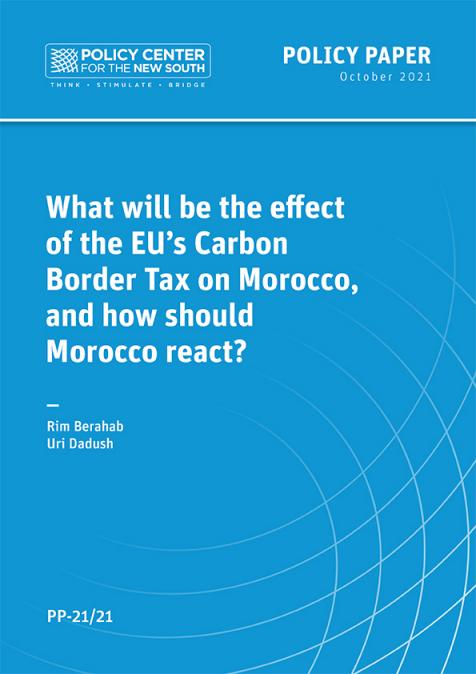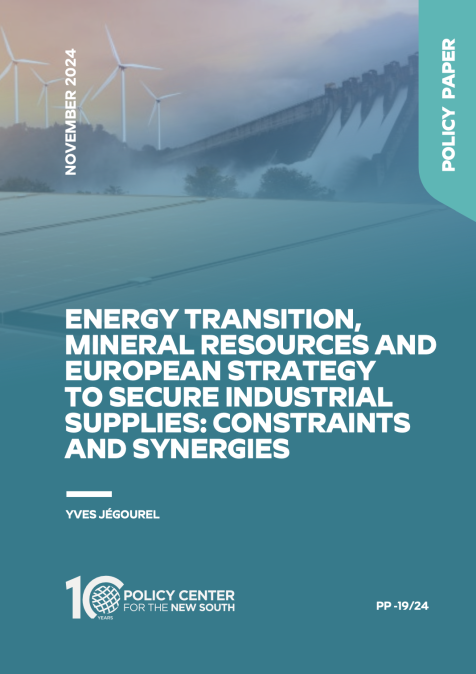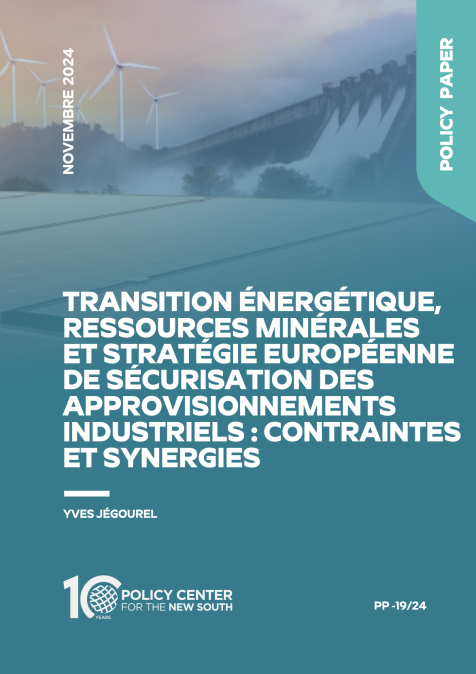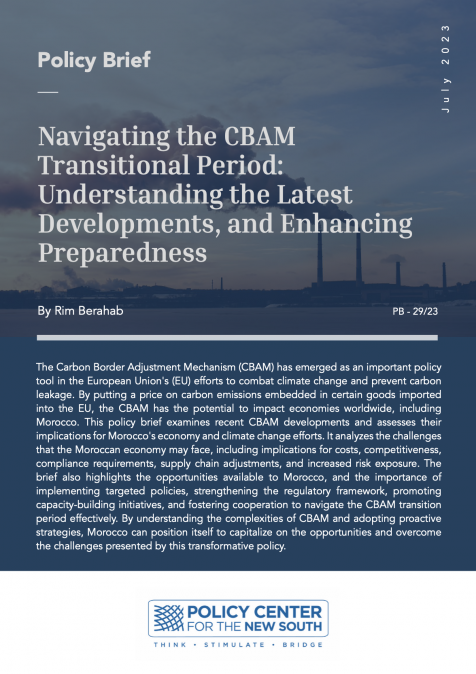Publications /
Policy Paper
The European Commission recently presented several legislative proposals as part of its “Fit for 55” initiative, designed to accelerate the reduction of greenhouse gas emissions and achieve carbon neutrality by 2050. A Carbon Border Adjustment Mechanism (CBAM) has been proposed as part of this initiative. The CBAM would be complementary to the EU’s Emission Trading Scheme (ETS), involving CBAM certificates issued to importers based on the integrated emissions intensity of the products they import into the Union and purchased at a price equal to that of ETS certificates. Morocco and the EU share strong economic ties, and the CBAM, if adopted, will affect Morocco. Although it aims to combat climate change - an issue of vital interest to Morocco - the EU’s proposed CBAM will impose substantial costs on Moroccan exports, especially if it is extended to other sectors in the future. The CBAM also carries significant adverse implications for the global trading system and it is inconsistent with the Paris Agreement. This paper describes how the CBAM works, explores its effects on Moroccan industry and agriculture, asks whether the CBAM is a sound policy from a global and Moroccan perspective, and discusses how Moroccan diplomacy and domestic policies should respond. It concludes that the CBAM is not sound policy and that Morocco should express its concerns, in line with those of many other trading partners of the EU. The paper also argues that the proposed CBAM - whether or not it will be adopted - is a wake-up call to Morocco, signalling that carbon emission regulations and taxation will intensify and that Morocco needs to accelerate its own decarbonization efforts, which have been insufficient.











